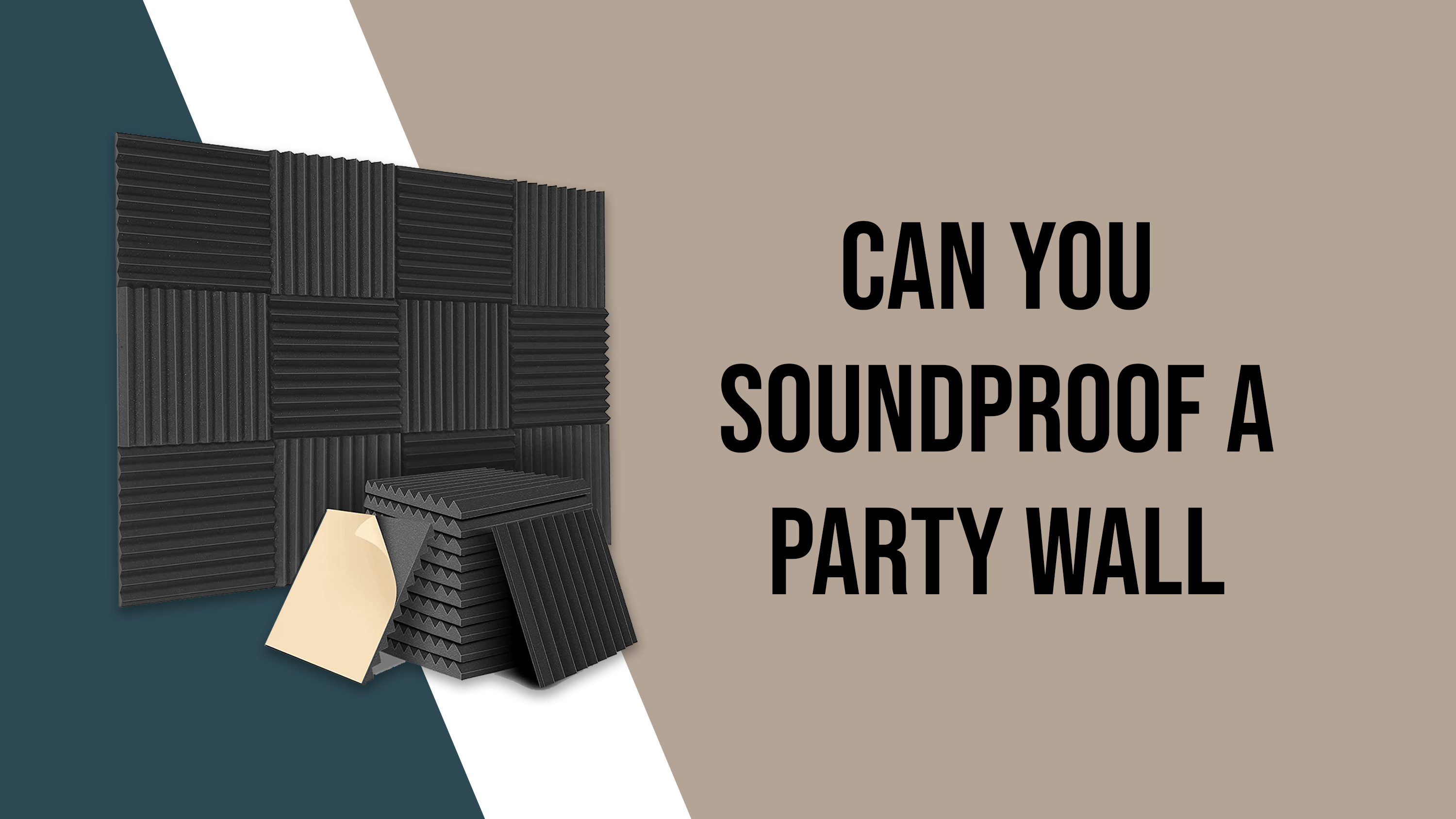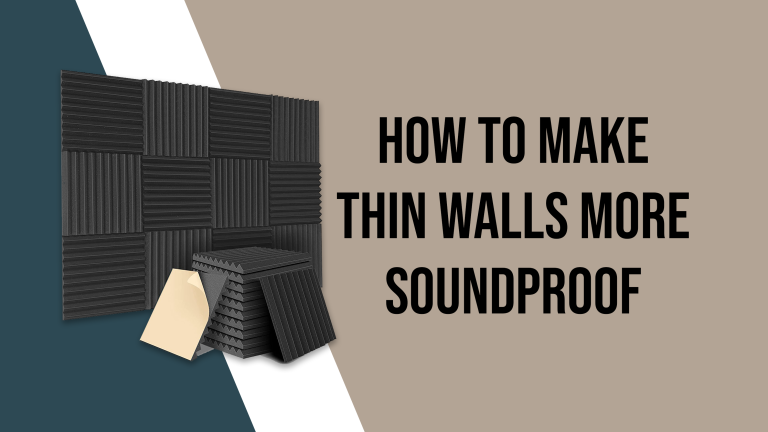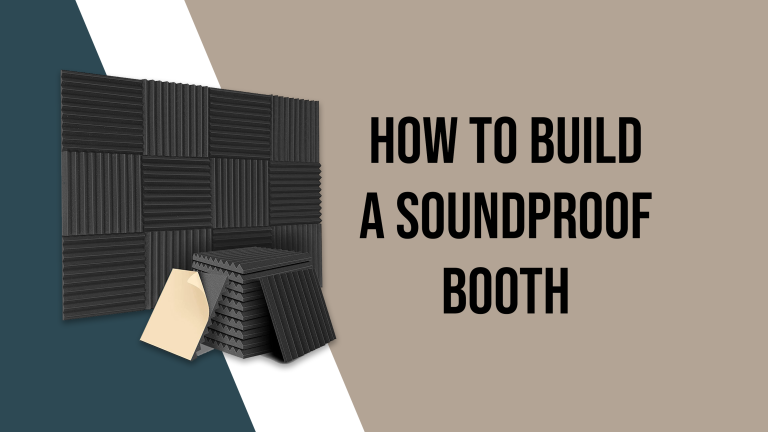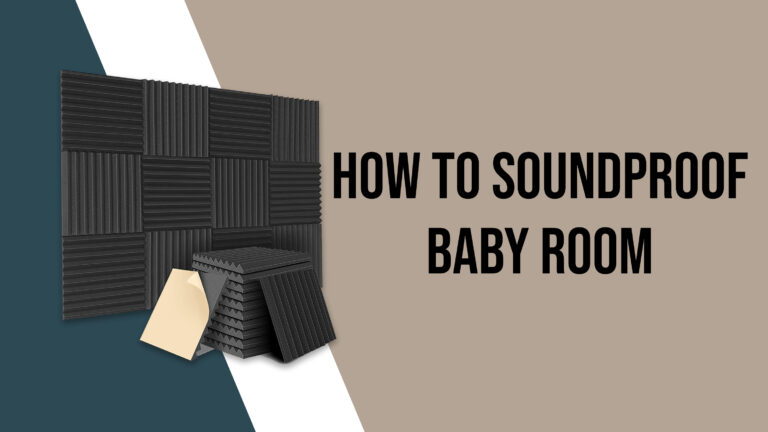Can You Soundproof A Party Wall
Living in an apartment or a townhouse can be a great experience, but it can also come with its own set of challenges. One of the most common issues that homeowners face is dealing with noise from neighbors, particularly when it comes to party walls.
You often soundproof:
- Barn Door
- Hollow Door
- Closet
- Drop Ceiling
- Hotel Rooms
- Hurricane Windows
- Baby Room
- Basement
- Mobile Home
A party wall is a shared wall that separates two properties, and it can be a major source of noise pollution. But, can you soundproof a party wall? The answer is yes, and in this article, we will explore some of the ways you can soundproof a party wall.
Can You Soundproof A Party Wall?
The best method will depend on the level of noise and the type of construction, and it may require a combination of methods for optimal results. It’s important to consult with a professional before starting any major soundproofing project.
Understanding the Problem
Before you can begin soundproofing a party wall, it’s important to understand the problem that you are trying to solve. Noise from neighbors can come in many forms, such as talking, music, and even footsteps. The level of noise will depend on a number of factors, such as the type of construction, the materials used in the wall, and the activities of your neighbors.
In order to effectively soundproof a party wall, you need to identify the specific type of noise that you are dealing with. This will help you to choose the right materials and techniques for soundproofing.
Methods of Soundproofing
There are several ways that you can soundproof a party wall. Some of the most common methods of party wall soundproofing include:
Adding Mass to the Wall:
This is one of the most effective ways to soundproof a party wall. Adding mass to the wall will help to absorb and block sound from passing through. This can be done by adding a layer of drywall or other sound-absorbing material to the existing wall.
Decoupling the Wall:
Another effective method of soundproofing a party wall is to decouple it, also called party wall acoustic insulation. This means separating the wall into two layers, with a layer of soundproofing material in between. This can be done by adding a layer of insulation or a soundproofing barrier to the existing wall.
Sealing Gaps and Cracks:
One of the most common ways that sound enters a party wall is through gaps and cracks in the construction. By sealing these gaps and cracks, you can prevent sound from entering the wall. This can be done with caulking or other sealants.
Adding Sound-Absorbing Materials:
There are many materials that can be added to a party wall to help absorb sound, such as fiberglass insulation or acoustic foam. These materials can be added to the existing wall, or they can be used to create a soundproof barrier.
Using Soundproof Curtains and Blinds:
Another option for soundproofing a party wall is to use soundproof curtains and blinds. These can be hung over windows or doors to help block out noise from the outside.
Choosing the Right Method
When it comes to soundproofing a party wall, there is no one-size-fits-all solution. The best method for you will depend on a number of factors, such as the level of noise that you are dealing with, the type of construction, and your budget.
It’s a good idea to start by trying the less expensive methods first, such as sealing gaps and cracks or adding sound-absorbing materials. If these methods don’t work, you can then move on to more expensive options, such as adding mass to the wall or decoupling it.
Costs
The cost of soundproofing a party wall can vary depending on the method that you choose. Some of the less expensive options include sealing gaps and cracks, which can be done for as little as $50 to $100. Party wall sound insulation, which includes adding sound-absorbing materials, such as fiberglass insulation or acoustic foam, to a wall can cost between $200 and $500.
More expensive options include adding mass to the wall, which can cost between $800 and $1,500, and decoupling the wall, which can cost between $1,500 and $3,000.
Effectiveness
The effectiveness of each method of soundproofing a party wall can also vary. Some methods, such as adding mass to the wall, are highly effective and can significantly reduce the level of noise that enters the wall. Other methods, such as sealing gaps and cracks, may only have a minimal effect on the noise level.
It’s important to note that soundproofing a party wall can be a multi-step process and may require a combination of methods for optimal results. It’s also important to consult with a professional before starting any major soundproofing project to ensure that it’s done correctly and safely.
What is a Party Wall?
A party wall is a shared wall between two or more properties. It is typically found in multi-unit buildings such as townhouses or apartment buildings, but can also be found in semi-detached or terraced homes. The purpose of a party wall is to separate the buildings and provide structural support, but it can also act as a conduit for sound transmission. This is why soundproofing a party wall is often necessary to reduce noise levels between properties.
Party Wall Soundproofing – Does it Work?
Yes, soundproofing a party wall or a shared wall can be effective in reducing noise transmission. However, the effectiveness of party wall soundproofing depends on various factors. Here are some things you need to consider before soundproofing a shared wall.
- Type of Noise: The first thing you need to consider is the type of noise you’re facing. Airborne noise (voices, music) requires a different kind of soundproofing and impact noise needs to be countered with some heavy-duty soundproofing.
- Soundproofing Technique: Once you figure out the type of noise you’re dealing with, employ the right soundproofing technique for the best results. We’ve listed the best party wall soundproofing methods in the next section.
- Soundproof Both Sides: To increase the effectiveness of the party wall soundproofing, ask your neighbors to do the same. A wall soundproofed from both sides will cancel more noise than a wall insulted on a single side.
How to Soundproof a Party Wall for Airborne Noise?
Soundproofing a party wall is all about reinforcing it, making it thicker, and covering all possible points that can leak sound. Here are the different techniques you can use to soundproof a shared wall.
Seal Gaps and Cracks:
Use a sealant or caulking to fill in any gaps or cracks in the party wall. This will prevent sound from entering through these openings.
Add Mass to the Wall:
Adding mass to the wall, such as by attaching a second layer of drywall, can help to reduce the transmission of airborne noise.
Soundproof Insulation:
Install soundproof insulation such as mineral wool or cellulose insulation in the party wall to absorb sound waves.
Install Resilient Channels:
These are metal channels that are installed between the wall studs and drywall to separate the two layers and create a “decoupled” wall, which can help to reduce sound transmission.
Install Acoustic Panels:
These panels can be installed on the party wall to absorb sound waves and reduce noise transmission.
Install Soundproof Curtains or Blinds: These can be hung on the party wall to absorb sound and reduce noise transmission.
Consult a professional:
They will be able to evaluate the specific needs of your situation, and provide you with a soundproofing solution that fits your budget and the level of noise you are trying to block.
It’s important to note that soundproofing a party wall may require a combination of methods for optimal results, and it’s also important to consult with a professional before starting any major soundproofing project to ensure that it’s done correctly and safely.
FAQ’s
Can you soundproof a shared wall?
Yes, it is possible to soundproof a shared wall. Some common methods include adding mass to the wall, decoupling the wall, sealing gaps and cracks, adding sound-absorbing materials, and using soundproof curtains and blinds.
How do I stop noise coming through my Neighbors walls?
To stop noise coming through your neighbor’s walls, you can try adding mass to the wall, decoupling the wall, sealing gaps and cracks, adding sound-absorbing materials, and using soundproof curtains and blinds. It may also be helpful to talk to your neighbor about the noise issue and work together to find a solution.
Can you hear through party walls?
It is possible to hear through party walls, especially if the walls are not properly soundproofed. The level of noise that is heard will depend on the type of construction and the materials used in the wall.
Can you soundproof a room without damaging walls?
Yes, it is possible to soundproof a room without damaging the walls. Some methods that can be used include adding mass to the wall, decoupling the wall, sealing gaps and cracks, adding sound-absorbing materials, and using soundproof curtains and blinds.
Can you soundproof a room that is already built?
Yes, it is possible to soundproof a room that is already built. Some methods that can be used include adding mass to the wall, decoupling the wall, sealing gaps and cracks, adding sound-absorbing materials, and using soundproof curtains and blinds.
How much does it cost to soundproof a shared wall?
The cost to soundproof a shared wall can vary depending on the method used and the size of the wall. Some methods, such as sealing gaps and cracks, can be done for as little as $50 to $100. More expensive options include adding mass to the wall, which can cost between $800 and $1,500, and decoupling the wall, which can cost between $1,500 and $3,000.
How do you make your neighbors not hear you?
To make your neighbors not hear you, you can try soundproofing your walls and floors, using sound-absorbing materials, and being mindful of your noise levels. You can also try to schedule your loud activities during times when your neighbors are less likely to be home, and you may want to talk to them and find a solution
What material can block sound?
Some materials that can block sound include concrete, brick, and drywall. Other materials that can be used to soundproof a room include fiberglass insulation, acoustic foam, and soundproofing barriers.
Can you cheaply soundproof a room?
Yes, it is possible to cheaply soundproof a room. Some methods that can be done on a budget include sealing gaps and cracks, adding sound-absorbing materials, and using soundproof curtains or blinds. However, keep in mind that the effectiveness of these methods may be limited compared to more expensive options such as adding mass to the wall or decoupling it.
Conclusion
Soundproofing a party wall can be a challenge, but it is definitely possible. By understanding the problem that you are dealing with, choosing the right method, and being willing to invest the time and money to do the job properly, you can create a more peaceful living environment for such as the costs associated with each method and the level of effectiveness.








